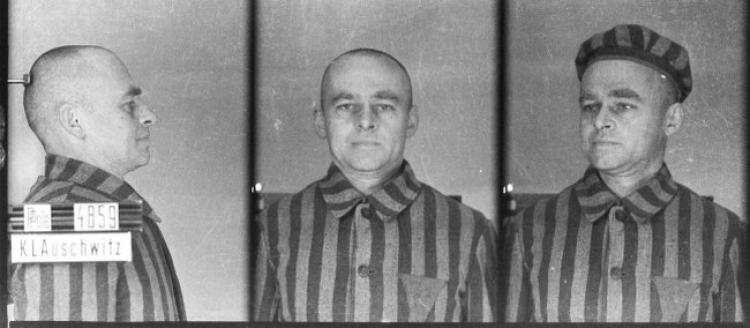Jack Fairweather, author of a best-selling biography of Witold Pilecki – “The Volunteer” – tells about the Polish hero’s life. Describing Pilecki’s fate, he tells a story of remarkable, brave man living in hard times, whose message is still important and still inspires.
Witold Pilecki is currently widely known in Poland, although his story had been forgotten for many long years. Nowadays, there are numerous texts, commemorative events and programs devoted to his life, especially his extraordinary mission to Auschwitz and oppression under the Stalinist regime. How did you, a person who has had no close bonds with Polish culture, hear of Pilecki for the first time?
By chance. A war reporter friend had visited Auschwitz and learnt about a resistance cell in the camp. I remember being shocked by the idea that anyone could resist in a place like that. Then a year or so later Pilecki’s report was translated into English for the first time and I learnt the name of the cell leader and his extraordinary story.
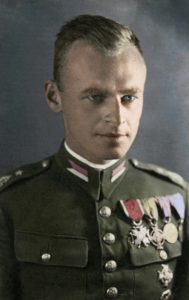
Why did you decide to work on a book about Pilecki?
I think I was like a lot of people coming to Pilecki’s story for the first time. Amazed by how he managed to report on Auschwitz’s horrors and then by the fact that so little was known about him in the West. Of course, then I discovered why. He’d gone on to fight the Communist takeover of Poland and been executed as a result and all trace of his wartime record was hidden by the regime. So Pilecki suffered a double injustice; his reports from the camp were neglected and then his own heroics were obscured for so long. Since the collapse of Communism, Pilecki’s family and scholars like Adam Cyra have done much to uncover his story. I wanted to tell his story for an international audience.
Let’s talk about his story. How did Pilecki’s life before World War II look like?
Pilecki was a gentleman farmer in eastern Poland, a reserve officer in the cavalry, a husband and father of two, and a devout Catholic. He worked passionately to help his local community, running a dairy cooperative, painting a mural in the local church, and helping out with the school play. He was a kind and generous man who disliked the divisive politics of the era but in this he was not exceptional. Indeed, one of the things that I found so compelling about him was understanding how a seemingly ordinary man put through the crucible of war was able to do so much that was extraordinary.
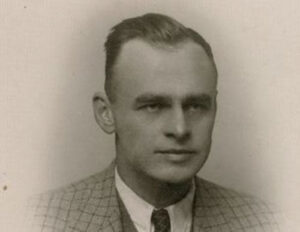
In September 1939, the Second World War broke out. In what way did Pilecki take part in the defence against Germany and in the activities of the Polish Underground State?
Pilecki fought against the German invasion as part of the 19th Infantry Regiment. After the capitulation, he formed one of the first resistance cells in Warsaw with a colleague, Jan Włodarkiewicz, which they called Tajna Armia Polska. It soon grew into a potent force of around 400 men, with Pilecki acting as chief recruiter.
In what circumstances was he placed in Auschwitz? What was his mission there?
How Pilecki found himself in Auschwitz is a story that, I think, says a lot about the sort of person he was. In early 1940, his colleague wanted to publish a political manifesto for TAP that narrowly defined the future of the Poland they were fighting for. Pilecki objected, because he feared such a declaration would divide the country at precisely the moment that every Pole – whatever their background – needed to come together to fight the Nazis. He pushed for TAP to join the mainstream of the underground under the leadership of Stefan Rowecki. Włodarkiewicz reluctantly agreed, but only after recommending Pilecki for a mission to uncover the fate of prisoners in a new concentration camp the Germans had just built outside Oświęcim: Auschwitz. Neither Rowecki or Włodarkiewicz could order Pilecki to undertake such a dangerous mission – they needed him to volunteer.
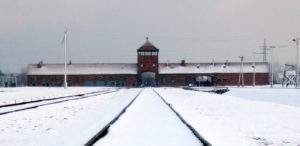
How did he manage to escape the camp?
I think his escape from Auschwitz must be one of the greatest from any Nazi concentration camp of the war. To understand just how he did it, I retraced his escape from the moment he made a dash from the camp to his incredible arrival at a safe house outside Nowy Wiśnicz. I’ll save my discoveries along the way for those who read the book!
In what actions was he involved after escaping Auschwitz?
After escaping Auschwitz, Pilecki found himself plunged into the cataclysmic end phase of the war. This meant his message from Auschwitz was lost. He took part of the Warsaw Uprising, was captured again by the Germans, and was finally liberated by US forces in May in 1945.
What was his fate after the war? What lead to his tragic death in 1948?
When Americans and Brits think about the end of war, it’s marches and parades. But that wasn’t the experience of Poland and much of Eastern and Central Europe. In a profound act of betrayal, Churchill and Franklin Delano Roosevelt had secretly agreed to cede Poland to Stalin, which meant that the end of the German occupation in Poland only heralded the start of the Soviet one. As so many of your readers will know, the country was subject to a brutal reign of terror after the war. Pilecki, like every Pole, faced a choice of whether to fight on or accept the grim reality. He set up a resistance cell in Warsaw at the end of 1945 only to be caught two years later, put through a show trial and executed. I can never read the end of the book without being struck anew by this injustice.
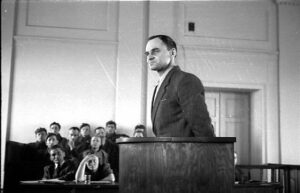
For many Polish people Pilecki is a symbol of resistance against two totalitarian regimes – nazism and communism. What values does Pilecki incarnate in your eyes? What is his most important legacy in your opinion?
For all his many exploits in the name of freedom, I find myself coming back to that extraodinary act of courage that brought him to the camp in the first place. In that act of volunteering, Pilecki set himself on a trajectory that was different to every other person sent to the camp. He was there by choice. He chose to go to Auschwitz. He chose to form an underground cell. He chose to smuggle reports out of the camp. In doing so, he reminds us that empathizing with the suffering of those beyond our immediate family and friends is also a choice. As the fate of his reports show, it’s not the instinctive response of many people to seek to come to the rescue of others, especially if they themselves are in danger or facing hardship. But just because it isn’t our instinctive reaction, it doesn’t mean we are absolved from taking action. The Nazis were counting on the world turning away from their crimes. Pilecki asks us, no matter how gruesome the subject, no matter how difficult our own circumstance, that we never stop trying to understand the plight of others. He died believing that he had failed to deliver his message. My hope is that this book will show that it wasn’t Pilecki that failed. He succeeded in alerting the world. The failure to take action lies elsewhere.
Which episode of Pilecki’s life interests you the most? Was it the Auschwitz or Stalinist periods, for which he is mostly known? Or maybe it is one of aspects of his ordinary pre-war life?
My book focuses on his experience in Auschwitz, but I’ve come to admire Pilecki at so many stages of his life. It’s been such a privilege to follow in his footsteps these past five years, and I hope readers will be inspired like I have been.
Interviewer: Łukasz Kożuchowski
Translation: Alicja Rose & Jessica Sirotin

